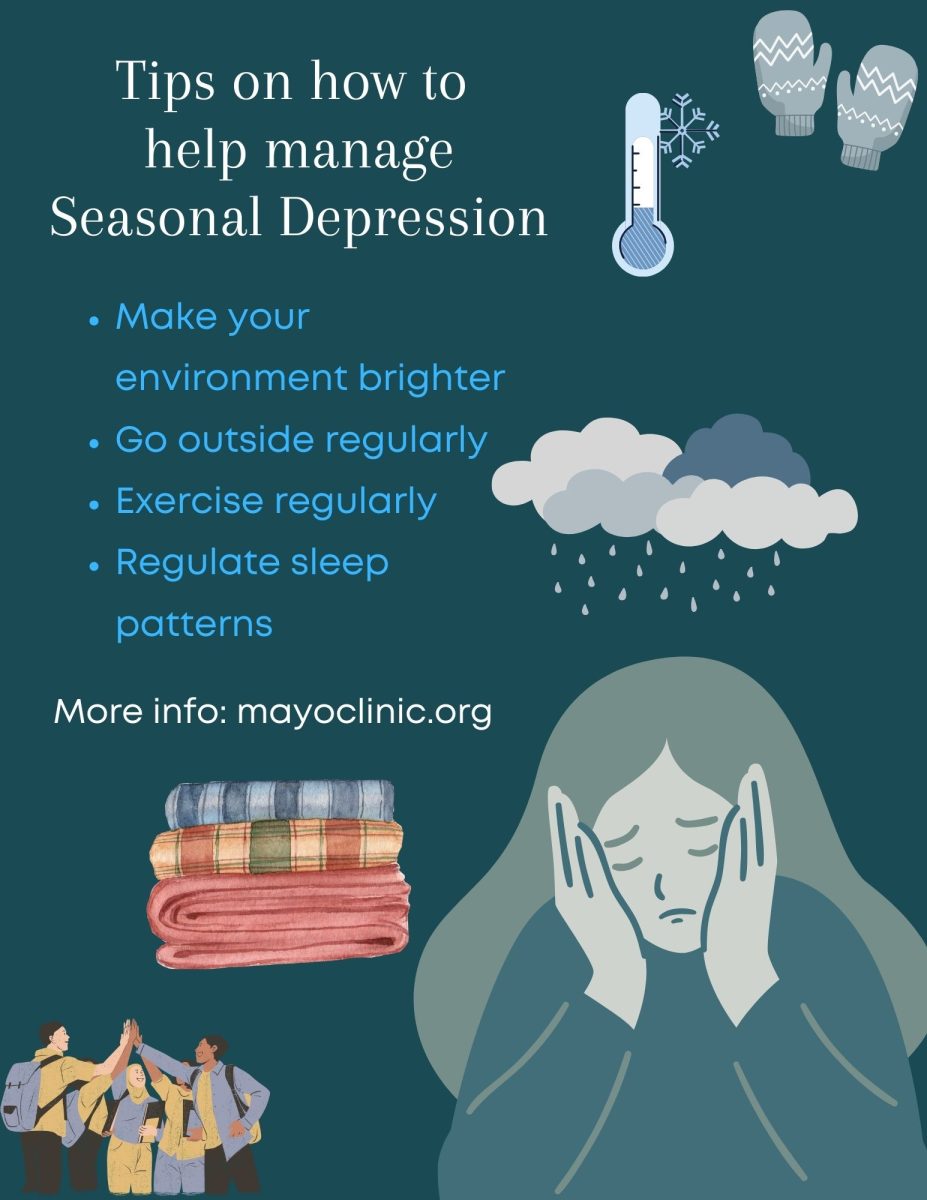As winter approaches, many people, including some students at Lincoln, begin to feel the effects of Seasonal Affective Disorder (SAD). According to the National Institutes of Health, SAD is a type of depression that relates to the change in the seasons. As the days become shorter and colder, many people begin to experience changes in mood as well as energy levels, these symptoms can last for four-five months during the year. While there is not a cure for it, there are many ways to help combat it, including reliable sources here on campus.
Senior Crowley Stevens opens up about their experience with SAD as fall approaches winter.
“I would say generally I get a little bit more depressed during winter,” Stevens said. “I notice not being able to go out as late and the sun being down is affecting my mood. I think the rain is nice, but it definitely does hamper the ability to do things outside.”
The lack of sunlight can have a negative impact on outdoor activities.
Sophomore Jo Gervais explains her tactic for minimizing the effects of SAD is by looking at the cold weather from a different perspective.
“I just romanticize the rain, like the cold,” Gervais said. “I curl up in cozy little blankets and sweaters. I do the things that I can only really do when it’s cold out that make me happy. I think it helps to think of it from a perspective of ‘all these things I get to do just cause it’s cold outside.’”
Mental Health Club leader senior Chase Allbritton suggested additional strategies people can use to help minimize the effects of SAD.
“I found that just you know, being in nature and going on walks is really beneficial, as well as spending time with friends and family,” Allbritton said. “Just doing things that bring you joy, and start with an outlet for stress and negative emotions. With seasonal depression specifically, I’ve heard that light therapy can be beneficial.”
There are many resources for students to get help if they need it, such as mental health club leaders, counselors, confidential advocates and social workers. Outside of school hours there are hotlines such as Youthline and The Trevor Project where students can talk to someone their own age. Additionally, there is a program coming to Lincoln called Clayful, which will be open to freshmen and AVID students. Clayful will give these students the ability to get in contact with a mental health coach.
“If you ever feel like you’re struggling, recognize that you’re not alone and really do find support, there’s a lot of resources,” said Allbritton.
Resources:
Suicide Hotline (call): 988
For BIPOC (provides immediate crisis counseling): Blackline 1-800-604-5841
Youthline (teen to teen youth crisis and support): (877-968-8491)
For LGBTQ Youth (suicide prevention hotline): The Trevor Project (212-695-8650)
Mental Health Club- every other monday (B-day) room 433
For more information email Mental Health Club Leaders:
Chase Allbritton: [email protected]
Anna Catherine Sgroi: [email protected]
Susanna Kramer: [email protected]
Nyilah Lewis: [email protected]

